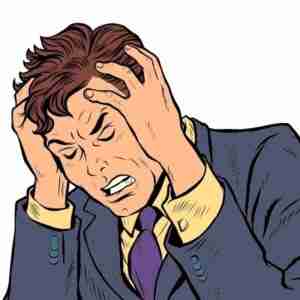
Sharp Headaches That Can Ruin Your Day
Sharp headaches are one of the most common medical complaints; with many people experiencing them daily. They can impact the life regardless of age or gender.
The World Health Organization (WHO) reports that nearly everyone will at least have occasional headaches. But 1 in 20 adults will have a headache nearly every day.
The cause of sharp headaches can vary from tension to medical reasons to even what you do or don’t eat or drink like with caffeine headaches.
Headaches are not an inconvenience. They can be painfully disabling causing significant personal suffering, impaired quality of life and even impact your job productivity and career.
For those that suffer from frequent headaches, the fear of the next headache may even make the next one worse because of the fear will trigger increased tension.
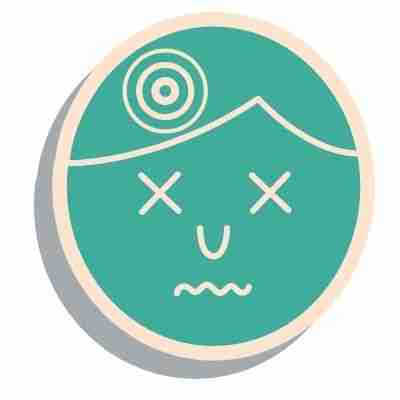
Headache Locations
A headache can occur in any part of the head, on both sides of the head, or in just one location. Headache locations are as unique as the individual experiencing the pain. While some people always get a migraine behind one eye, it can vary which eye a person will have impacted or the other triggers they might experience. Headaches are not one-size-fits-all.
But there are different two general ways to define the categories of headaches.
The International Headache Society (IHS) has two ways to categorize headaches: either as primary, when they are not caused by another condition, or secondary, when there is a further underlying cause.

Primary Headaches
Primary headaches are stand-alone illnesses caused directly by the overactivity of, or problems with, structures in the head that are pain sensitive. This includes the blood vessels, muscles, and nerves of the head, neck, and brain. These primary headaches may also result from changes in chemical activity of the brain itself.
Common types of primary headaches include migraines, cluster headaches, and tension headaches.

Secondary Headaches
Secondary headaches are a painful symptom triggered by another condition that happens when an underlying cause stimulates the pain-sensitive nerves of the head. In other words, the headache pain is just a symptom, not the issue.
A wide range of different factors can cause secondary headaches and can include the mundane to life threatening..
• alcohol-induced hangover
• brain tumor
• blood clots
• bleeding in or around the brain
• “brain freeze,” or ice-cream headaches
• caffeine withdrawal
• carbon monoxide poisoning
• concussion
• dehydration
• glaucoma
• teeth-grinding at night
• influenza
• overuse of pain medication, known as rebound headaches
• panic attacks
• stroke
As headaches can be a symptom of a serious condition, it is important to seek medical advice if they become more severe, regular, or persistent. Your doctor is always going to be able to help you more than the internet.
For example, if you are in pain and it becomes disruptive to your daily life or if it is progressing and is more painful (or disruptive) than previous headaches, or fails to improve with medication or if you also experience other symptoms along with the headaches like confusion, fever, sensory problems, or a stiff neck, you should contact a doctor immediately.
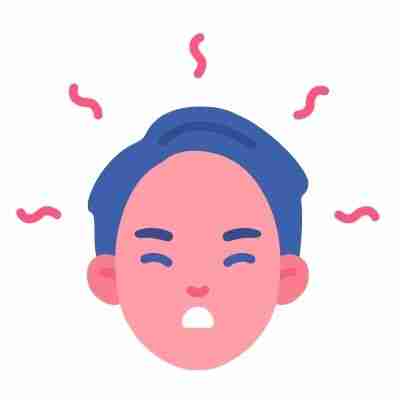
Types Of Headaches
There are many different types of headache.
Tension Headaches
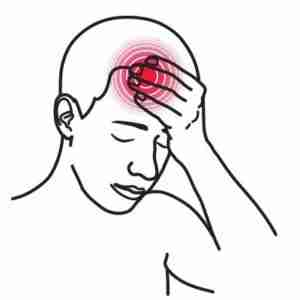
Tension headaches are by far the most common form of primary headache. Such headaches normally begin slowly and gradually in the middle of the day.
Common symptoms are feeling a tight band around the head or a constant, dull, or throbbing ache on both sides of the head. Often the pain will spread from or to the neck.
These type of tension related headaches can be episodic (usually lasting a few hours in length but then leaving and not returning). Or they can be chronic, with the headache reoccurring for 15 or days a month for period of at least 3 months.
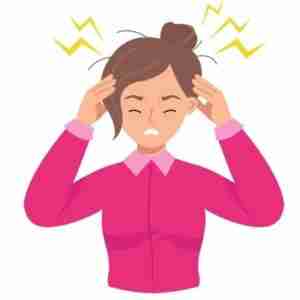
Caffeine Headaches
Many people will assume their caffeine headaches are due to tension or ‘stress’ but these headaches are a major symptom of caffeine withdrawal.
Because caffeine narrows the blood vessels that surround the brain, when your body runs out of caffeine, the blood vessels enlarge. This causes an increase in blood flow around the brain and pressures the surrounding nerves. This is a caffeine withdrawal headache. You can stop these headaches by consuming more caffeine.
But if you have reached the point where caffeine itself is the problem (sleeplessness, irritability or even blood pressure issues arising from too much caffeine), you may have to consider cutting back.
However, you can cut back on caffeine without triggering caffeine headaches. When you cut back slowly so your body adjusts to lower levels of caffeine, you won’t trigger caffeine withdrawal. The trick here will be delivering caffeine just enough caffeine to step down your tolerance levels and not retrigger caffeine addiction.
Get too much caffeine and you are triggering caffeine addiction. Get too little and you trigger caffeine withdrawal headaches. So cutting back sounds easier than it is. That’s why 89% of people that try to modify their caffeine intake will fail.
When trying to reduce caffeine the best solution is CAFFEINEcontrol. This innovated solution will help you cut back your caffeine while still keeping you focused and alert and avoiding caffeine withdrawal symptoms typical when you try to use decaf or watered-down coffee.

Migraine Headaches
A migraine headache is usually an intense throbbing pain usually only on one side of the head. The pain is usually accompanied by other symptoms and the combination is what makes them so debilitating:
• blurred vision
• light-headedness
• nausea
• sensory disturbances known as auras
Migraine is the second most common form of primary headache and can have a significant, and often debilitating, impact on the ability to function of an individual. According to the WHO, migraine is the sixth highest cause of days lost due to disability worldwide. A migraine can last from a few hours to between 2 and 3 days.
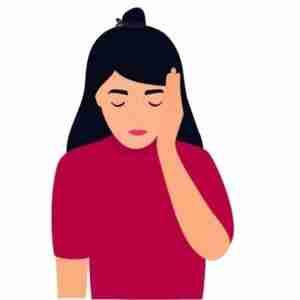
Rebound Headaches
Rebound or medication-overuse headaches stem from an excessive use of medication to treat headache symptoms. They are the most common cause of secondary headaches. They usually begin early in the day and persist throughout the day. They may improve with pain medication, but worsen when its effects wear off.
Along with the headache itself, rebound headaches can cause:
• neck pain
• restlessness
• nasal congestion
• reduced sleep quality
• Rebound headaches can cause a range of symptoms, and the pain can be different each day.
• Cluster headaches
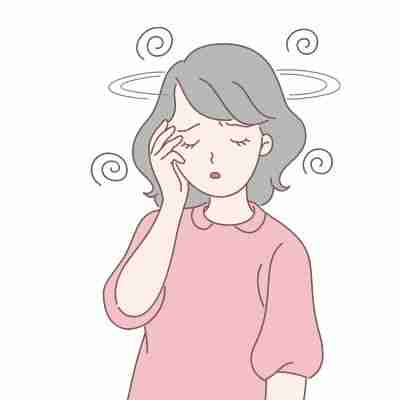
Cluster Headaches
Cluster headaches refer to headaches that are clustered together in a string. They typically last between 15 minutes and 3 hours, and they come on suddenly. You can have one, to many, in a single day and they will reappear for weeks or even months. When you are between clusters you might not experience any headache symptoms at all and this pain-free period can last for months or years.
The pain caused by cluster headaches is:
• one-sided
• severe
• often described as sharp or burning
• typically located in or around one eye

Thunderclap: The Dangerous Headaches
These are sudden, severe, and intense headaches that are often described as the “worst pain ever experienced”. They reach maximum intensity in less than one minute and last longer than 5 minutes.
A thunderclap headache is often secondary signal to a life-threatening condition like an intracerebral hemorrhage, cerebral venous thrombosis, ruptured or unruptured aneurysms, reversible cerebral vasoconstriction syndrome (RVS), meningitis, and pituitary apoplexy.
People who experience these sudden, severe headaches should seek medical evaluation immediately.
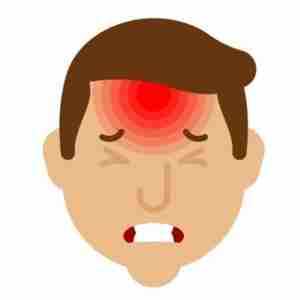
General Headache Treatment Guidelines
In general, the way most headaches are treated is rest and over-the-counter pain relief medication like Advil or Excedrin. Doctors can also prescribe preventative medication, such as tricyclic antidepressants, serotonin receptor agonists, anti-epileptic drugs, and beta-blockers depending on the symptoms presenting.
Alternative HeadacheTreatments
There are many alternative treatments to drugs for headaches, however, because there may be an underlying cause to your headaches, a doctor should always be consulted to ensure you are making decisions in your own best interests.
• Acupuncture
• Apply a heat or ice pack to your head or neck (avoid extreme temperatures)
• Avoid stressors
• Cognitive behavior therapy
• Eat regular meals with focus on stable blood sugar.
• Exercise regularly
• Focus on good sleep
• Herbal and nutritional health products
• Hypnosis
• Meditation
• Research has not provided evidence to confirm that all these methods work.
However, it is important to note that research has not confirmed that all these alternative methods work.
Reducing Caffeine Can Be Easy
Cut back on caffeine without caffeine withdrawal or brain fog.
Faster and easier than anything you tried before.
Learn more at https://caffeinecontrol.com
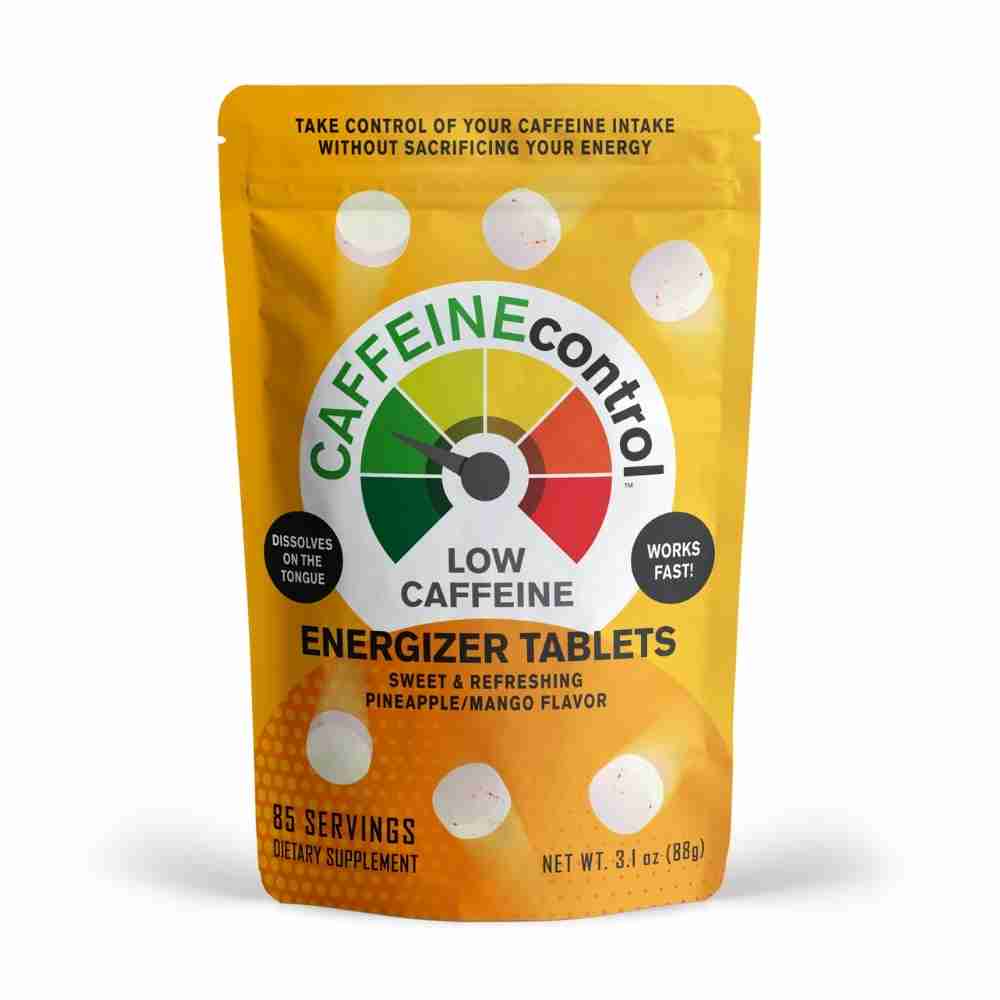
Quitting caffeine does not have to mean suffering through headaches, feeling irritable, or moody.
It doesn’t even have to mean giving up coffee!
We’ve taken a more effective approach to energy: a sweet low caffeine candy that dissolves on the tongue that skips digestion, so caffeine works 10x faster than coffee, energy drinks, or even caffeine pills. By delivering a microdose of caffeine super fast, CAFFEINEcontrol lets you reduce caffeine while getting the improved energy and focus you need to get things done. You can quickly and easily kick caffeine addiction to the curb — without caffeine withdrawal!
Pingback: 4 Signs of Poor Sleep Hygiene & 1 Quick Fix - CaffeineControl